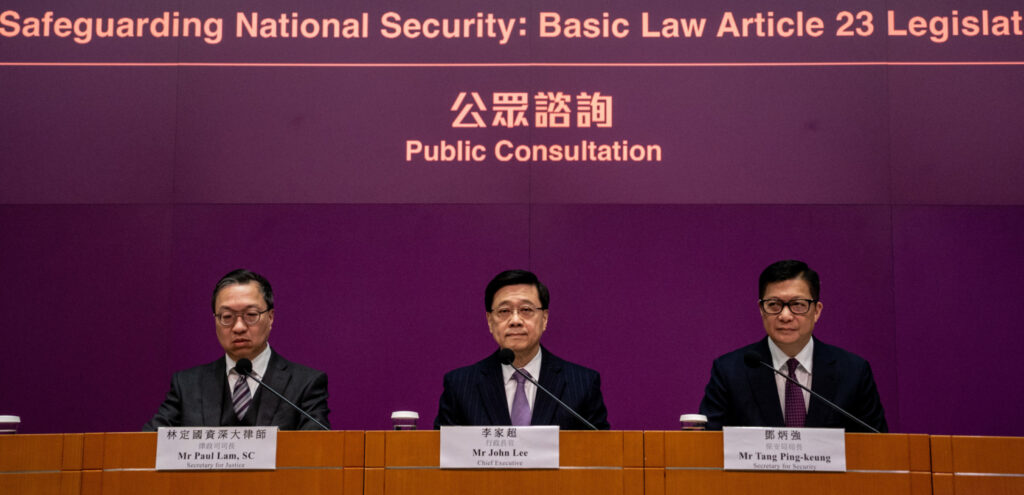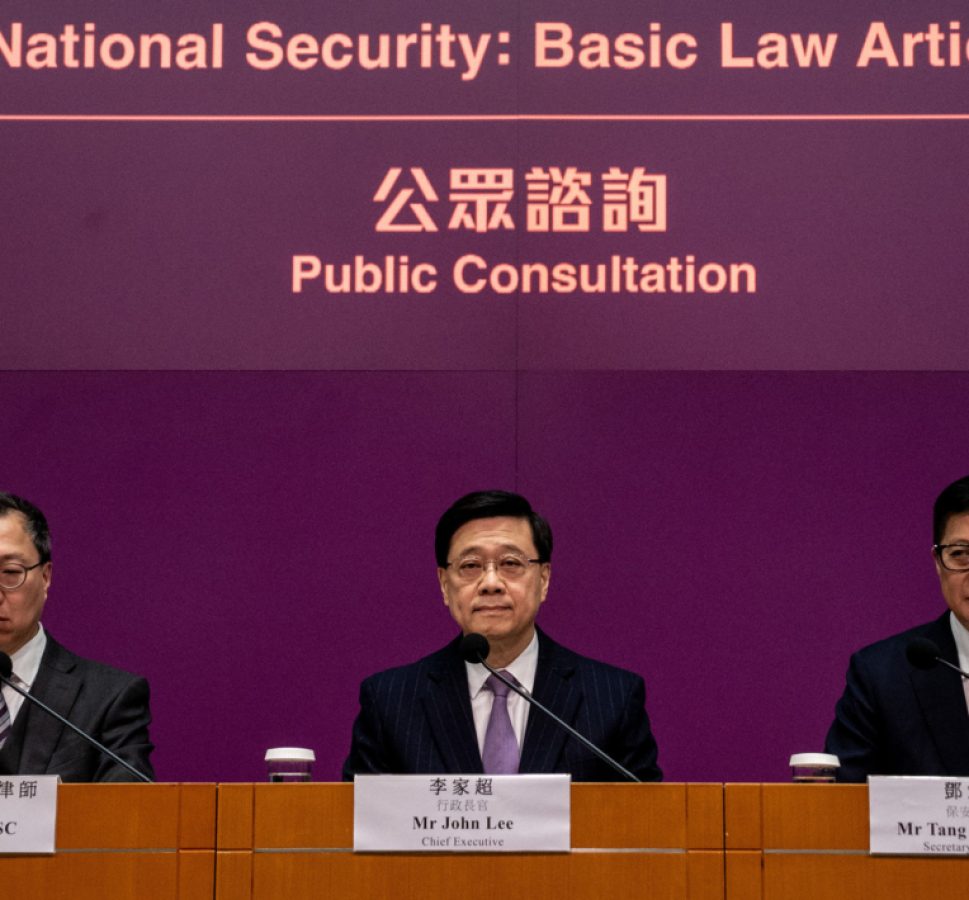
New bill includes lengthy prison terms for offences such as treason and longer sentences for acts deemed to be sedition.
Hong Kong’s Legislative Council has begun debating the draft of a new national security law for the Chinese territory after Chief Executive John Lee said it should be passed at “full speed”.
Discussions on the Safeguarding National Security Bill, as it is officially known, started at 11am (03:00 GMT) on Friday, and was adjourned less than 15 minutes later until March 11.
The draft bill, some 212 pages long (PDF), was published online a few hours ahead of the session and includes new laws on treason, espionage, external interference, state secrets and sedition.
Those found guilty of treason could face sentences of up to life imprisonment, while those convicted of breaching state secrets or espionage could face 10 and 20 years respectively. Punishments relating to alleged collusion with foreign forces will also be increased, particularly if people are deemed to be working together rather than alone.
Penalties have also been increased for sedition, currently addressed under a colonial-era law, to between seven and 10 years from two. And in contrast with the internationally-accepted standard for sedition, the bill’s provisions say that people can be charged with the offence even without an element of violent intent.
Other provisions include allowing police to detain suspects for two weeks before charging them, compared with 48 hours currently, and giving police the ability to apply for permission to remove a defendant’s right to a lawyer while in pre-charge detention. The bill also allows the authorities to cancel the passports of “absconders”.
In a statement, Lee urged the passage of the bill at “full speed” to enable the territory to move forward.
Hong Kong “has to enact the Basic Law Article 23 legislation as soon as possible – the earlier the better. Completing the legislative work even one day earlier means we can more effectively safeguard national security one day earlier,” he said in a statement.
“The Hong Kong SAR [Special Administrative Region] can then focus its efforts on developing the economy, improving people’s livelihood and maintaining the long-term prosperity and stability of Hong Kong.”
Samuel Bickett, a former Hong Kong-based lawyer who was jailed over the alleged December 2019 assault of a plainclothes police officer and later deported, said the law was likely to pass with few major changes.
“It represents a clear, unequivocal move by Beijing to ensure the slightest dissent will not go unpunished in Hong Kong,” Bickett, who now wrote on X.

Opposition unlikely
Previous administrations shied away from introducing Article 23 after 500,000 people took to the streets of the city in 2003 after the government of then Chief Executive Tung Chee-hwa tried to bring in the legislation.
But the latest draft is being considered in a vastly changed political environment.
Hong Kong is now subject to a Chinese-drafted national security law that was imposed in June 2020 after hundreds of thousands of people took to the streets the year before calling for more democracy in protests that sometimes turned violent.
The broadly-worded Beijing law bypassed the local legislature and made acts deemed to be secession, subversion, “terrorism” and collusion with foreign forces punishable with sentences as long as life in prison.
While the authorities have said the law was necessary to restore stability, critics say it has “decimated” the territory’s long-held freedoms, which Beijing had promised to respect for at least 50 years after regaining sovereignty over Hong Kong in 1997.
Thousands have been arrested, media and civil society groups have closed, and many pro-democracy politicians have gone into exile.
Media tycoon Jimmy Lai, owner of the Apple Daily tabloid, is currently on trial in arguably the most high profile national security case. The Apple Daily was closed in 2021 after police raided its offices, Lai and other staff were arrested and its assets frozen.
The legislature has also been overhauled since 2019 with pro-Beijing candidates dominant after changes to electoral rules cut the number of directly-elected seats and ensured only those deemed loyal to China could contest. The house has no opposition members.
The bill is being considered just a week after a month-long public consultation process on the bill came to an end.
The government said it received some 13,147 submissions and that 98.6 percent “indicated support for the legislation and made positive comments”. It also held consultations with select groups involving about 3,000 people. Hong Kong has a population of more than seven million people.






